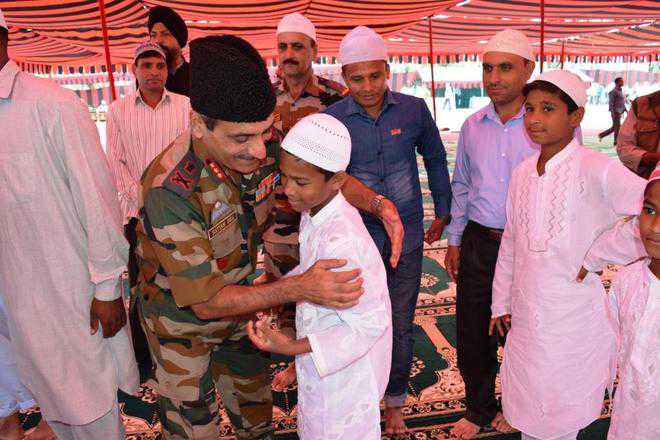
Chairs a high-level meeting. PTI
Aditi Tandon
Tribune News Service
New Delhi, September 29
Congress president Sonia Gandhi on Thursday threw her weight behind Prime Minister Narendra Modi after the surgical strikes on terror camps in POK and said the Congress stood behind the government in its action to protect the country’s security.“We hope Pakistan will now take effective steps to dismantle infrastructure on terror that it has supported,” Sonia said after chairing a high-level party meeting on the issue of the government’s response post the Uri attack.Leading the Congress’s position on the development moments after the Director General Military Operations announced India’s strikes across the LoC was Ahmed Patel, political secretary to Congress president Sonia Gandhi.(Follow The Tribune on Facebook; and Twitter @thetribunechd)Sonia, who is still not fully recovered from her shoulder dislocation, chaired the Congress meeting ahead of the all-party meeting called by Home Minister Rajnath Singh. The meeting was attended by former prime minister Manmohan singh, former defence minister AK Antony, Sonia’s political secretary Ahmed Patel and Leader of Opposition in Rajya Sabha Ghulam Nabi Azad. Since the Uri attack the Congress had been calling for a response that would deter Pakistan from indulging in further attacks of the nature of Uri and Pathankot. On Wednesday, the Congress officially criticised India’s decision to boycott the Saarc meet, asking for the Saarc meeting sans Pakistan.But on Thursday, all Congress leaders hailed the military response which signals a shift in India’s oft-practised policy of strategic restraint.“We congratulate the Indian Army for undertaking surgical strikes on terror launch pads. We stand completely behind our Armed Forces,” Ahmed Patel said.Randeep Singh Surjewala, chief spokesperson of the Congress, said, “The Congress wholeheartedly supports the surgical strike on terror pads in PoK by the Indian Army. Salute the valour of our armed forces.”Congress vice-president Rahul Gandhi was yet to comment on the strikes and tweeted only against the RSS accusing it of preventing him from addressing Congress workers in Guwahati where on Thursday he appeared before a court in a case of defamation of the Sangh.Top Congress leaders, meanwhile, remained huddled in a meeting chaired by Sonia to discuss the party’s position should the government seek a national political consensus on further relatiation against Pakistan.Ghulam Nabi Azad and Ahmed Patel earlier held a long conversation before Manmohan Singh and AK Antony arrived at Sonia’s residence for a formal meeting on the subject.The Congress had been arguing that the government’s recent responses against the Uri attack swung between the sublime and the ridiculous and were not tough enough.Congress leader Manish Tewari on Wednesday said, “Response has to be such as deters Pakistan’s deep state from staging further terror attacks in India. So far India’s responses–the stated review of the Indus Water Treaty, Most Favoured Nation status to Pakistan and boycott of Saarc summit in Islamabad have only been from sublime to ridiculous in nature. The Indus response is long-term. The MFN status must be immediately withdrawn and boycott of Saarc is no answer. The government should in fact work to amend the Saarc charter which prohibits change in summit venue to see that the summit is held but without Pakistan. Most of all, we are yet to see evidence of the muscularity PM Narendra Modi had flaunted on the eve of the 2014 General Elections.”


























































































































